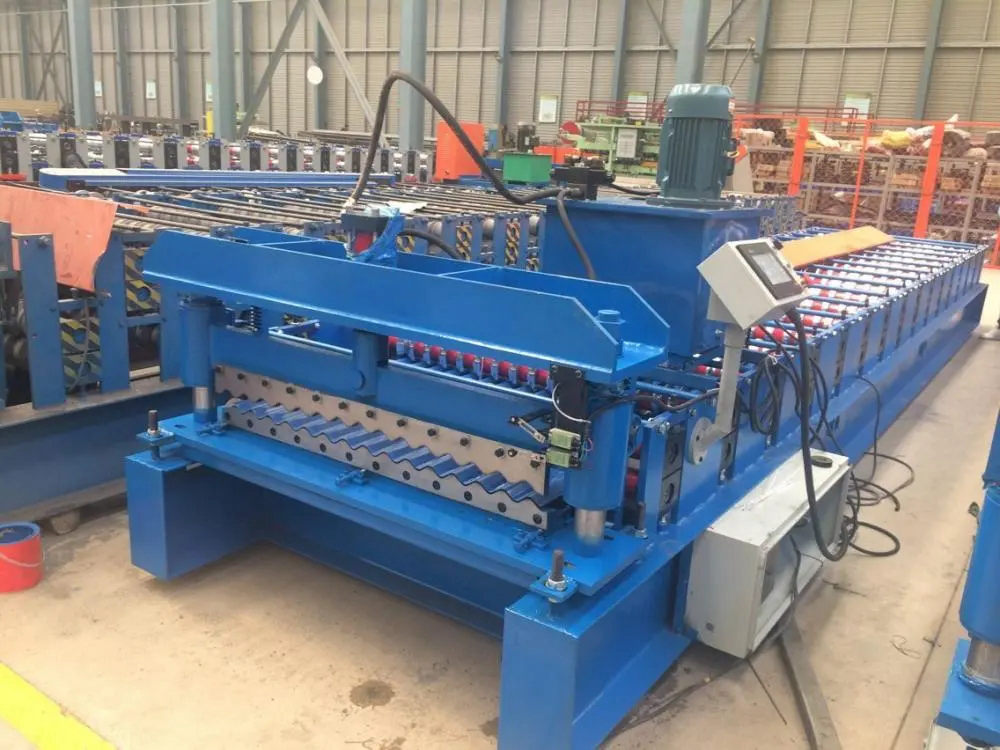
Aluminum Strut Channel Roll Forming Machine An Overview
The aluminum strut channel roll forming machine has become an instrumental piece of equipment in the manufacturing sector, particularly in industries that require strength, durability, and flexibility in structural components. Strut channels are versatile, U-shaped components used predominantly in construction, electrical, and plumbing applications. They provide a secure method for supporting and hanging other materials, making them crucial in creating stable structures and installations.
Understanding Roll Forming
Roll forming is a process of shaping metal into desired cross-sectional profiles through a series of contoured rollers. The aluminum strut channel roll forming machine utilizes this methodology to transform flat aluminum sheets into strut channels with precision and efficiency. The process begins with feeding a continuous coil of aluminum into the machine, where it gradually undergoes deformation until it reaches the final desired shape.
Roll forming is advantageous for producing long sections of material with consistent quality and uniform lengths. It is often favored over other manufacturing processes due to its ability to produce complex shapes while maintaining a high level of material integrity and minimal waste.
The Importance of Aluminum
Aluminum is widely praised for its properties, including lightweight, corrosion resistance, and excellent strength-to-weight ratio. This makes aluminum strut channels a preferred option in many projects, especially when factors such as weight savings and durability are critical. The aluminum strut channel roll forming machine is specifically designed to leverage these beneficial properties, allowing manufacturers to create high-quality strut channels that meet specific application requirements.
Key Features of Aluminum Strut Channel Roll Forming Machines
1. High Efficiency These machines are engineered for high production rates, allowing manufacturers to produce significant quantities of strut channels in a relatively short time. This efficiency is crucial for meeting tight deadlines in commercial and industrial projects.

2. Customizability With adjustable settings, manufacturers can produce strut channels in various sizes and shapes. This versatility ensures that the channels can meet the diverse needs of different construction and installation applications.
3. Automation Many modern roll forming machines are automated, reducing the need for manual intervention and minimizing the likelihood of errors. Automation also leads to increased safety in the manufacturing process.
4. Cost-Effectiveness Although the initial investment in a roll forming machine can be significant, the long-term savings in labor and material costs often justify the expense. The efficiency and precision of the machines contribute to overall cost reductions.
5. Eco-Friendly Option Aluminum is a recyclable material, and using it in construction is an environmentally friendly choice. The roll forming process produces minimal waste, further enhancing the sustainability of the production method.
Applications of Aluminum Strut Channels
Aluminum strut channels have a wide range of applications across various industries. In construction, they are commonly used for supporting HVAC systems, electrical conduits, and plumbing infrastructure. The lightweight nature of aluminum makes it easier to handle and install, which can be especially beneficial in high-rise buildings and other projects where accessibility is a concern.
In telecommunications, strut channels are used to mount antennas and support cables. The versatility and adaptiveness of aluminum strut channels allow for customizable solutions tailored to specific needs, making them integral to ensuring reliable communication networks.
Conclusion
The aluminum strut channel roll forming machine represents a crucial technological advancement in the manufacturing of structural components. Its ability to produce high-quality, lightweight, and durable strut channels positions it as an invaluable asset across various industries. As construction and industrial needs evolve, the demand for efficient and adaptable solutions continues to grow, ensuring that roll forming technology remains at the forefront of modern manufacturing practices. By harnessing the unique properties of aluminum and the efficiency of roll forming, manufacturers can better meet the demands of an ever-changing marketplace while promoting sustainable practices.